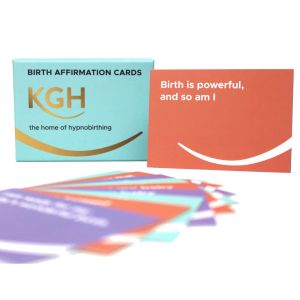
Present Situation:
We often hear pregnant women say, “They don’t allow me to ……. at my hospital,” or “They induce at …… weeks,” etc. etc.
You hear women being told by their midwife, “I’ll make an appointment for your induction next week,” without consultation or information, and sometimes even when the woman has specifically stated that she does not want her labour to be induced.
Statements like this are frequently heard in relation to induction of labour, but they can be made in relation to other procedures as well.
Informed Consent – Illegal Procedures?
 The law says that no procedure can be done without informed consent. If you so much as lay a finger on someone without their consent it is technically battery. As a therapist I am very careful to ask permission for the most apparently superficial of touches.
The law says that no procedure can be done without informed consent. If you so much as lay a finger on someone without their consent it is technically battery. As a therapist I am very careful to ask permission for the most apparently superficial of touches.
Every procedure carried out to women during their pregnancy and birth (and indeed every medical procedure) should follow the same guidelines. Both the pros and cons should be presented and consent requested.
Consent Examples:
I have never heard a woman given information about the risks before she has a scan. Hospitals produce information leaflets which say what information can be gained from the scan and what the procedure is. Risks and benefits? NEVER.
Another example is induction of labour. Women tend to be told the risks of continuing the pregnancy and the benefits of the induction. I have never heard a woman being told the benefits of continuing the pregnancy and the risks of the induction and the cascade of interventions that can ensue. There is often coercion verging on bullying to frighten a woman into agreeing to an induction of labour. If you tell a woman she is putting her baby at risk, she will agree to anything. The latest EMBRRACE figures indicate that stillbirth decreases after 42 weeks whereas women are still being told that this figure goes up.
I’m not saying that scans are bad, and induction of labour can be good FOR MEDICAL REASONS. They both have very clear benefits in certain circumstances. But a woman cannot give informed consent unless she has had the risks and benefits clearly explained to her. Would a class action change this? I believe it would have a dramatic effect and maybe this is what is needed to create change? It could argued that many of these interventions given to a women are illegal.
Personal Experience
My own example is having my waters broken. When I had my forth baby they told me that baby would arrive quite quickly if they broke my waters; benefits – no risks. I gave consent, but I did not give informed consent as I had not been given the information to be able to do so.
They broke my waters, and baby arrived in 10 minutes BUT it was the most painful 10 minutes of my life. It was 10 minutes of extremely painful, continuous contractions. It was an experience I would NEVER have agreed to had I been given any indication of the likely outcome. Even, “The contractions could be longer and more painful” would have been a step towards better information.
Of course there are many health workers who carefully explain the possible outcomes, but the frequent reports I get from mothers tell me that this is very often not the case.
“The most important thing is you have a healthy baby”
This is a quote that Dr Sarah Jarvis used on the Jeremey Vine show in 2019.
People say this to console women for having an appalling birth experience. Does anyone think a healthy baby isn’t important? Of course not. However there is a difference between surviving and thriving. The knock-on effects of a poor birth experience can be very significant to a womans mental health.
We need to focus on this more, being respectful to a woman’s wishes, gaining full consent, enabling her to give birth with dignity and support. And before anyone complains to me that the baby is the most important, that is a given! Births can be a positive and empowering experience. In KGH, women who have experienced birth that has a taken a unexpected turn, will share that they still feel empowered and positive. Could this be the experience for all women?
Even the WHO says that the medicalisation of birth has gone too far.
How does KGH teach your rights?
In KGH we have a section that explains to you what your choices are and the likely outcome of your choices.
We teach the questions to ask to make sure you and your birth partner are given the information you need to make an informed choice.
Your birth partner is educated to understand the process and the questions that might be asked, and the procedures that could be suggested.
We teach you to use the wonderful BRAINS mnemonic:
- Benefits
- Risks
- Alternatives
- Instinct
- Nothing
- Smile
Everything we do has risks and benefits – always. If you do not know the risks and benefits of any procedure you cannot make an informed choice and in truth it is often up to you and your birth partner to find out the facts in order to achieve this.
In KGH we help you with this process every inch of the way. We help you to write alternative birth plans depending on how your labour unfolds.
Most importantly the KGHypnobirthing course is designed to support you whatever form your labour takes so you feel that the birth of your baby is a positive and empowering experience.









